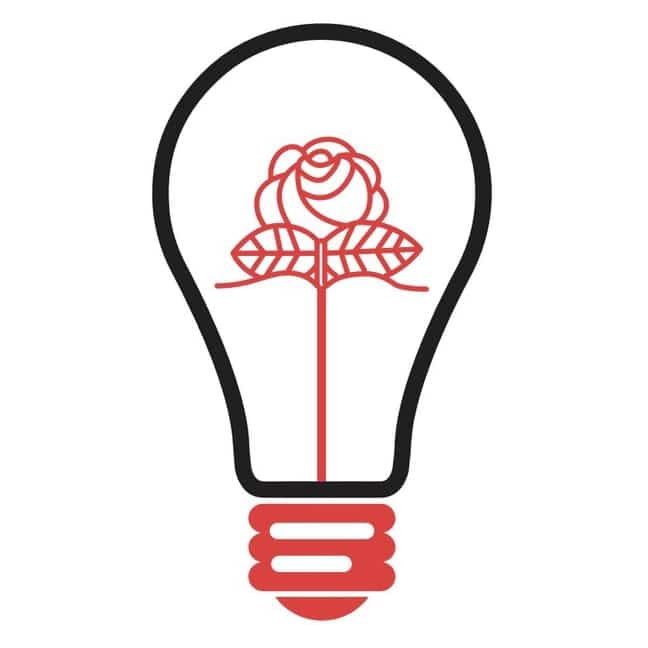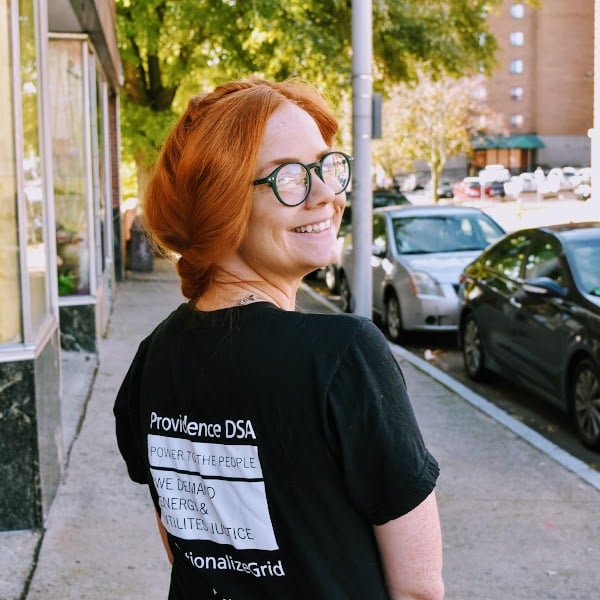Power to the People? Nationalize Grid
National Grid provides the electrical and natural gas service for the majority of Rhode Island ratepayers, and it’s a hugely unpopular company. Because of large rate hikes, the shut off of services to vulnerable people unable to pay, and the company’s seeming disinterest in working with communities impacted by its expansion of fossil fuel infrastructure in places like Burrillville and
November 5, 2017, 1:29 am
By Steve Ahlquist
 National Grid provides the electrical and natural gas service for the majority of Rhode Island ratepayers, and it’s a hugely unpopular company. Because of large rate hikes, the shut off of services to vulnerable people unable to pay, and the company’s seeming disinterest in working with communities impacted by its expansion of fossil fuel infrastructure in places like Burrillville and the Port of Providence, many have said that the company values corporate profits over customer service. Add to the list of complaints National Grid’s laggard response in restoring service after the recent windstorm caused thousands to lose power throughout the state.
National Grid provides the electrical and natural gas service for the majority of Rhode Island ratepayers, and it’s a hugely unpopular company. Because of large rate hikes, the shut off of services to vulnerable people unable to pay, and the company’s seeming disinterest in working with communities impacted by its expansion of fossil fuel infrastructure in places like Burrillville and the Port of Providence, many have said that the company values corporate profits over customer service. Add to the list of complaints National Grid’s laggard response in restoring service after the recent windstorm caused thousands to lose power throughout the state.
The Providence Democratic Socialists of America (Providence DSA) have chosen to organize against National Grid, and they’ve teamed up with the George Wiley Center and other activists to make that happen. On Saturday morning about thirty people gathered in Pawtucket for the first working session of the Providence DSA’s Power to the People campaign.
“Our ultimate goal is public utilities,” said Alex Loehrer, co-chair of the Providence DSA, “but our immediate goal is to stop the shut offs and to reverse the 53 percent increase [in electric rate hikes] for the people of Rhode Island.
“Public utilities in other states are cheaper, and they work better,” said Loehrer, noting that as of Friday there were still over 1000 people in Rhode Island without power. “They have fewer shutoffs, [and] fewer power outages.”
There’s a website devoted to the Providence DSA’s efforts, NationalizeGrid.com. The group is collecting stories on their site. If you’ve been affected by National Grid rate hikes or if you’ve had your utilities shut off or if you’ve had any issue whatsoever with National Grid, you can submit your story.
“Our more medium term goal is working alongside George Wiley Center to bring back PIPP, Percentage Income Payment Plan,” said Paul Rakotoarisoa, the other co-chair of the Providence DSA. Under PIPP, a plan Rhode Island had in place from 1986 to the mid-90’s, people pay a percentage of their income for their utility bills instead of a fixed rate.
Camilo Viveiros, coordinator at the George Wiley Center, has been working to restore PIPP for a long time. He also understands the need for public control of our utilities.
“We had an intern this summer from Nebraska and he spoke at one of our general meetings and he explained how [public control of utilities] happened in Nebraska,” said Viveiros. “They had a ballot initiative and they organized state wide and they’re the only state [in which the utilities] are publicly owned. And their commissioners are elected, so as you can imagine, the pressure on them to actually represent the interests of the utility customers is very influential. So typically, if they vote against the public’s interest then they no longer hold that position. That’s what democracy should be like, right?”
Viveiros continued, “As a step towards that longer term solution we’re pushing for a Percentage Income Payment Plan because, unfortunately, even when you have public ownership you have to ensure that the people who are most vulnerable, the people that are most impacted, people of color, low income people, that [PIPP] is hardwired into any legislation that they are protected.”
Here’s a link to a petition the George Wiley center has for people to express support for PIPP.
“I am really fed up and frustrated with National Grid. I think a lot of Rhode Islanders are,” said Rhode Island State Representative Aaron Regunberg (Democrat, District 4, Providence). “It’s not about the front line workers who are doing incredible work but the lack of preparation from corporate leadership this last week has got a lot of people upset because its part of a larger pattern, including the unacceptable rate hikes this last month.”
Regunberg, a candidate for the office of Rhode Island Lieutenant Governor, was at the meeting because he recently announced that he will be introducing legislation to empower local community ownership of their electrical utilities once the Rhode Island House of Representatives reconvenes in January.
“When you’re continually getting taken advantage of, it means you need to stand up and fight for a better approach and the reality is, there is a different model, public power utilities. We can empower communities to transfer authority from a billionaire CEO and shareholders thousands of miles away to locally owned, not for profit institutions that are directly accountable to their communities.”
 Regunberg noted that the Pascoag Utility District is a successful model of that here in Rhode Island.
Regunberg noted that the Pascoag Utility District is a successful model of that here in Rhode Island.
“So this isn’t some crazy idea. We can do this, it’s just going to take people willing to stand up against a very powerful political player.”
The Providence DSA is looking for allies in their effort. They would like to merge their efforts with environmental groups concerned about National Grid’s continued expansion of fossil fuel infrastructure in Rhode Island. But ultimately, it’s about human rights, and our future..
“Access to power or access to utilities is a fundamental human right,” said Rakotoarisoa. “People shouldn’t be afraid of having their heat or electricity turned off because they are unable to pay.”
“Power is a human right, absolutely,” said Regunberg. “In the same way that healthcare and food and shelter… and I think that self-determination to power, and the decisions about how to produce and distribute it… This is about taking our energy future into our own hands.”














